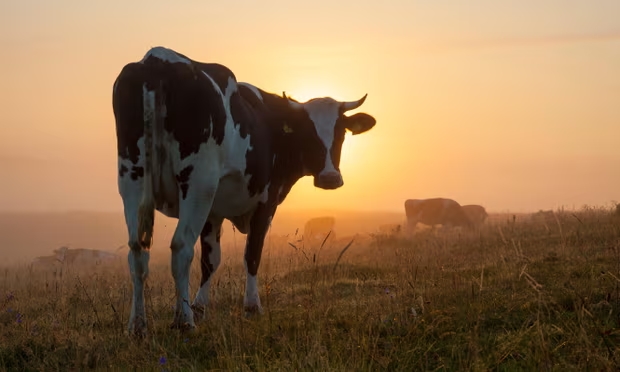Government Urged to Fund Research on Environmental Impact of Cattle Feed Additives
In a bid to combat the environmental impact of cattle farming, Sweden is on the brink of embracing a groundbreaking solution – feeding cows seaweed and other additives to slash methane emissions. A report from the Swedish Environmental Protection Agency catapults this initiative into the spotlight, showcasing a surge in developments in the field and recommending a closer look into this pioneering approach.
Among the star players in the world of cow feed additives are red algae and 3-nitrooxypropanol (3-NOP), both heralded for their potential to significantly curb methane emissions. Red algae, when incorporated into daily feed, boasts a staggering claim of reducing methane emissions in meat animals by up to 90%. Meanwhile, 3-NOP, having secured approval for use in dairy cows in the EU since February 2022, emerges as a promising contender, with the potential to cut methane emissions by around 30% in dairy cows and an impressive 45% in their meaty counterparts.
This eco-friendly revelation stems from a discovery made by researchers in Australia, unraveling the unique ability of seaweed to disrupt methane production in cows’ stomachs. As the report unfolds, it becomes evident that while these feed additives exhibit significant potential, uncertainty looms over their long-term effects, hampering their widespread adoption within production systems.
Despite the challenges, the report proposes a bold step forward: urging the government to commission the agency and other authorities for a deeper dive into this revolutionary approach. The study envisages a comprehensive exploration, delving into the socioeconomic impact, support mechanisms for farmers and the food chain, research enhancement, innovation initiatives, and bolstered collaboration with the industry.
In the landscape of “climate-smart cows,” the report opens the door to further investigation, exploring avenues to enhance productivity and deciphering genetic variations between breeds concerning methane production. With Sweden’s agricultural sector emitting a substantial 3.6 million tonnes of CO2 equivalents of methane in 2021, of which a whopping 2.9 million tonnes emanated from cattle digestion, the need for transformative measures is undeniable.
Emma Carlen, a climate analyst at the Swedish Environmental Protection Agency, sheds light on the potential impact of methane-reducing feed additives: “We believe that this [methane-reducing feed additives] can be a measure to reduce the methane from cattle in Sweden. We don’t have very many other measures that can have this effect within the current production level.”
As the report paves the way for further exploration, industry players are stepping up to champion these innovations. Volta Greentech, a Swedish company developing a land-based seaweed factory, reports an impressive 80% reduction in cows’ methane emissions through pilot projects. Fredrik Åkerman, the CEO of Volta Greentech, emphasizes the importance of policy development to incentivize the industry, stating, “To maintain profitability in the industry, it’s quite difficult for us to sell a product that costs money to reduce emissions if the incentives are not there. So the policy development is very important.”
In a world where the agricultural sector is grappling with sustainability challenges, Sweden’s venture into methane-reducing feed additives paints a promising picture of innovation, collaboration, and a renewed commitment to greener practices in the pursuit of a more sustainable future.
